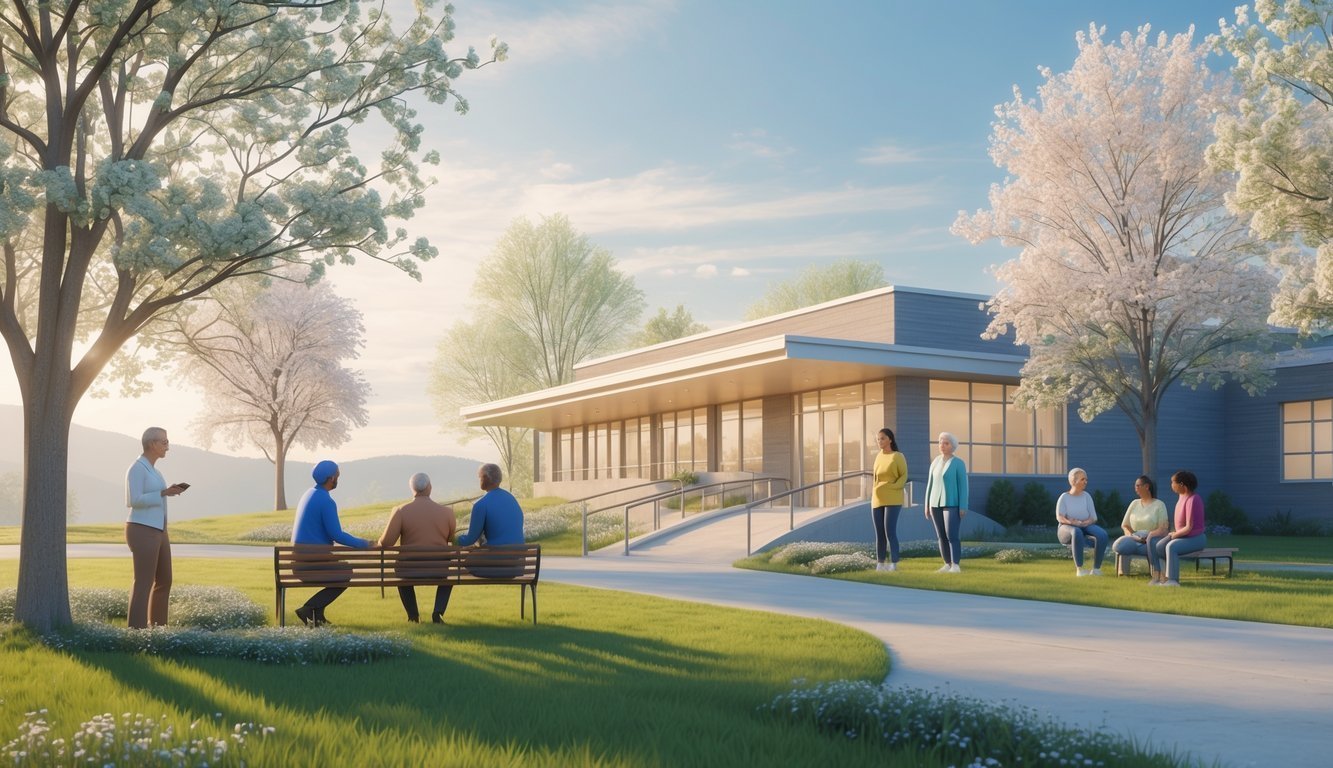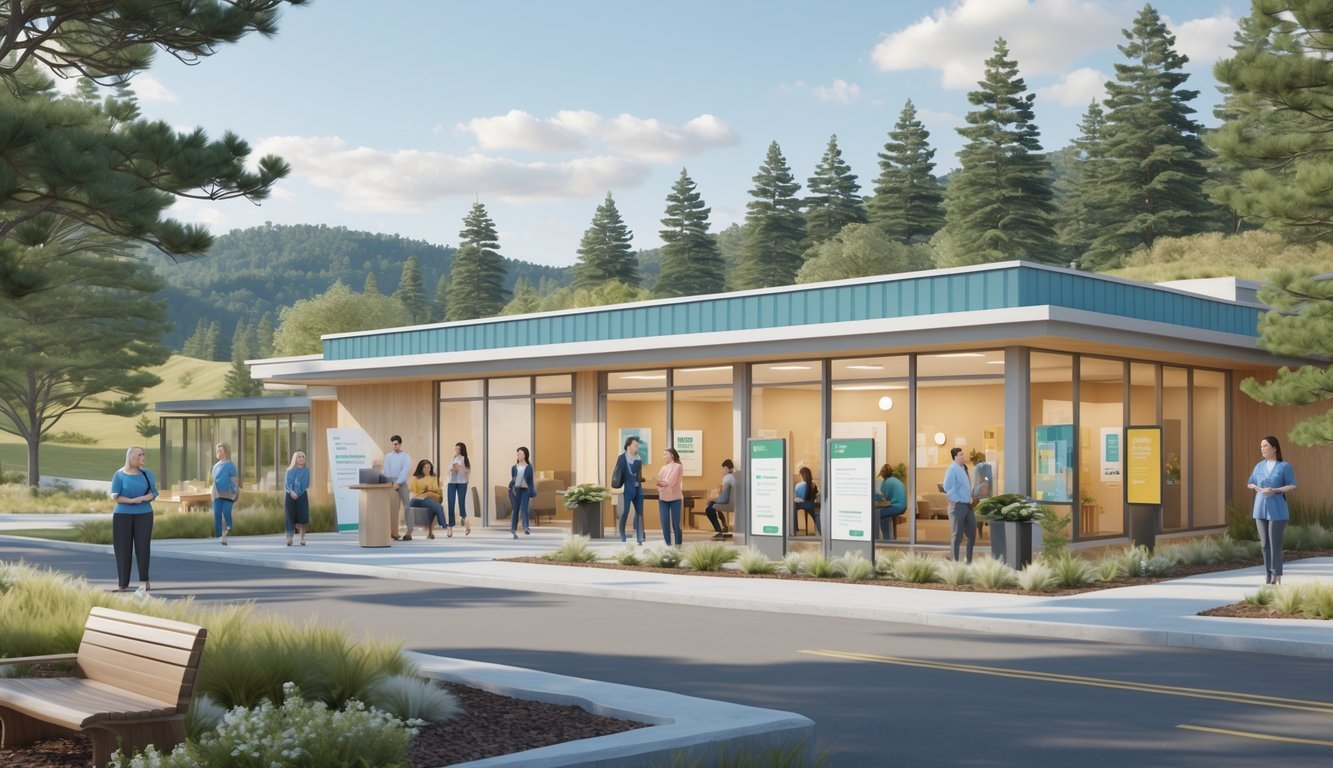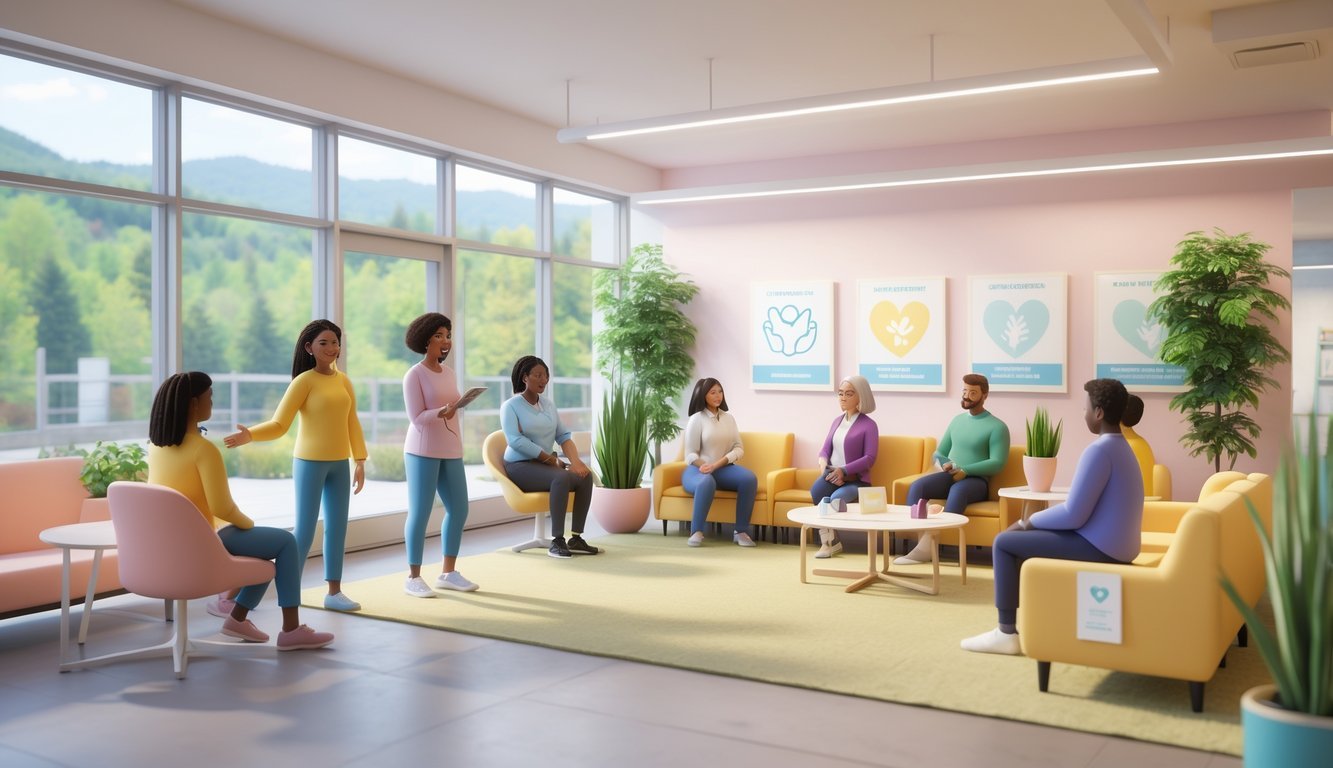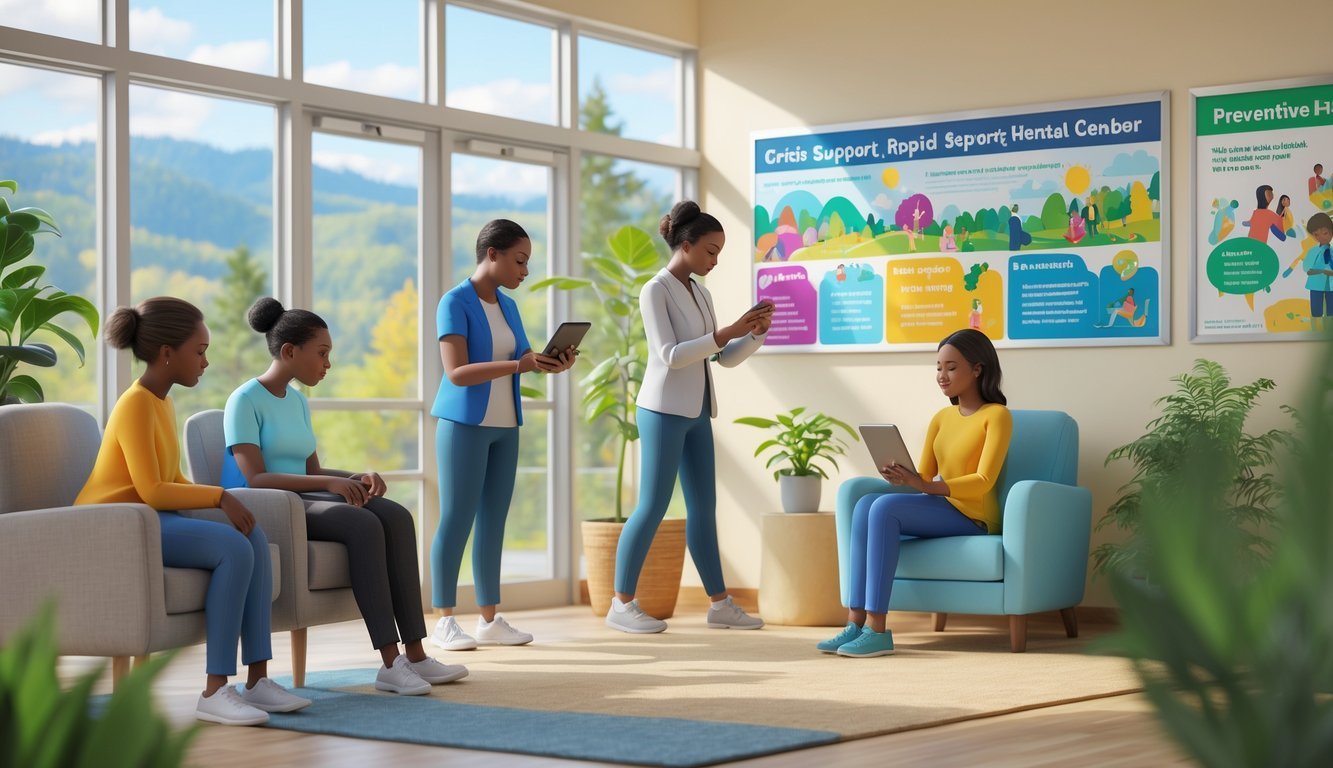PsychNewsDaily Publishers
100 Summit Drive
Burlington, MA, 01803
Telephone: (320) 349-2484
PsychNewsDaily Publishers
100 Summit Drive
Burlington, MA, 01803
Telephone: (320) 349-2484
New Hampshire offers various free or low-cost mental health care options, including community programs, crisis centers, and residential treatment facilities, available to residents in need.

Looking for mental health support in New Hampshire shouldn’t empty your wallet. The state actually has several ways to get free or low-cost mental health care, including community programs, crisis centers, and state-funded options.
If you live in New Hampshire, you can get free mental health services through groups like Southern NH Services, 24/7 crisis hotlines, and special programs for people without stable housing. These resources cover everything from urgent crisis help to ongoing therapy, so there’s support no matter your financial situation.
Whether you’re in a mental health crisis or just looking for regular counseling, knowing your options can help you make better choices. You’ll find out how to reach local resources, connect with rapid response teams, and use programs that aim to keep you well for the long run.

New Hampshire has a bunch of free mental health services through community health centers, state-run programs, and special treatment facilities. You’ll find counseling, crisis help, residential treatment, and substance abuse programs, though each one has its own rules for who qualifies.
You can get different types of free mental health care in New Hampshire. Community mental health centers offer both individual and group counseling for depression, anxiety, and other issues.
Crisis intervention services run 24/7 hotlines and send out mobile crisis teams when needed. These teams show up in your community if there’s an emergency.
Residential treatment providers take care of people with serious mental health conditions. They provide a structured place to live, daily therapy, and medical support.
Outpatient programs might include:
Some places focus on specific groups. For example, youth services help kids and teens with behavioral health needs.
Whether you qualify for free mental health care depends on a few things. Most programs check if your income fits their guidelines, usually based on federal poverty levels.
Income Requirements:
You might also qualify if you have Medicaid. Many providers take Medicaid as full payment.
If you don’t have insurance, you often get priority for free care. You’ll fill out some financial forms when you first visit.
Crisis services usually don’t have income rules. If it’s an emergency, you can get help no matter your ability to pay.
Where you live matters too. Rural areas sometimes have different requirements than cities.
New Hampshire treats mental health and substance use disorders together at many places. These programs tackle both at once.
Substance Abuse and Mental Health Services Administration funding keeps many local programs running. This federal money helps keep services free across the state.
Programs you’ll find:
Some residential programs take Medicaid. Higher-intensity options might ask for private insurance or use a sliding fee scale.
Recovery support keeps you on track after treatment. You’ll find peer support groups and ongoing counseling.
Harm reduction programs offer safety support right away, even if you’re not ready for full treatment.

You’ll find free mental health care in New Hampshire at community centers in cities like Manchester and Nashua, through crisis services, and at places that combine mental health and addiction support. You can reach these services by contacting centers directly or just calling 211 to get connected fast.
Community mental health centers really hold up the free mental health system here. They’re everywhere in the state and see people no matter what they can pay.
Major Service Areas:
| Region | Primary Cities | Key Services |
|---|---|---|
| Southern | Manchester, Nashua, Derry, Salem | Individual therapy, group counseling, psychiatric services |
| Central | Concord, Franklin, Hillsborough | Crisis intervention, family therapy, medication management |
| Western | Keene, Lebanon, Claremont, Peterborough | Outpatient treatment, peer support, case management |
| Northern | Plymouth, Lancaster, Colebrook | Rural outreach, telehealth services, emergency care |
| Seacoast | Portsmouth, Rochester, Exeter, Somersworth | Specialized programs, youth services, adult treatment |
Most centers take Medicaid and use a sliding fee scale based on your income. You can walk in during business hours or call to set up a visit.
Even smaller towns get services. Places like Conway, Laconia, Newport, Tilton, and Suncook have satellite offices or regular visits from bigger centers.
Finding free mental health help nearby means knowing where to look and how to reach out. Honestly, the fastest way is to call 211. It’s open all day, every day, and connects you to local programs.
For urgent needs:
You’ll find that bigger cities like Manchester and Nashua have more providers and special programs. Smaller towns usually get connected through regional centers.
A lot of places now offer telehealth, so if you’re in a remote spot like Colebrook or Lancaster, you can still get counseling or see a psychiatrist using your phone or computer.
Most centers let you just walk in during regular hours. Some even stay open evenings or weekends for people who work during the day.
Most community centers in New Hampshire now treat addiction and mental health together. You can get help for both at the same place.
Treatment options:
Groups like Goodwin Community Health cover both substance misuse and mental health. They use sliding fee scales and take most insurance.
New Hampshire’s residential treatment providers run facilities in cities like Manchester and Derry. If outpatient care isn’t enough, these places step in with more intense help.
Live Free Recovery Services in Manchester offers low-intensity residential treatment and takes Medicaid. Many programs welcome walk-ins and can do same-day assessments.
Recovery meetings happen everywhere. NA and AA are free and meet daily in cities like Keene, Lebanon, Portsmouth, and Rochester.
Crisis mental health help is available 24/7 all over New Hampshire. You can get support right away through several channels if you’re in an emergency.
24/7 Crisis Resources:
Several places have walk-in crisis centers. You don’t need an appointment or insurance, and you’ll get an assessment and short-term help right away.
Mobile crisis teams will come to you in places like Portsmouth, Rochester, Keene, and Lebanon. These teams include mental health pros who can figure out what’s going on and set up next steps.
Some crisis programs focus on certain groups. There are youth crisis services, and older adults can get help from geriatric mental health specialists.
Crisis services link you right to community mental health services and can usually get you a follow-up appointment within a day or so.

New Hampshire has immediate crisis help through hotlines, rapid response teams, and community training. These programs offer emergency support and teach people how to handle mental health crises.
You can get instant help through the 988 Suicide & Crisis Lifeline, which is always open by phone, text, or chat. You’ll talk to trained counselors who can handle suicide risk, substance problems, and mental health emergencies.
The state also has regional crisis lines run by local mental health centers. These hotlines connect you with help in your area.
What you get with crisis hotlines:
If someone needs immediate medical help or has tried suicide, call 911. For other mental health emergencies, 988 is a solid choice.
New Hampshire’s rapid response system hooks you up with mental health services fast when things get urgent. You won’t have to wait long to get the right care.
The rapid response network includes walk-in centers and mobile crisis teams that come to you. These teams can provide emergency psychiatric care at your home or in the community.
Rapid response services offer:
You can reach these services through your local community mental health center or by calling the crisis line. Most don’t care if you have insurance or not.
Mental Health First Aid shows you how to spot and respond to mental health crises right in your own community. This training program gives you the tools to support someone dealing with depression, anxiety, psychosis, or substance use issues.
In New Hampshire, community groups, schools, and workplaces all run these training sessions. You pick up practical skills, like listening without judgment and connecting folks to professional help.
Training topics include:
The training runs for 8 hours, and you get a certification at the end. A lot of employers, schools, and community groups offer these sessions for free or at a low cost.